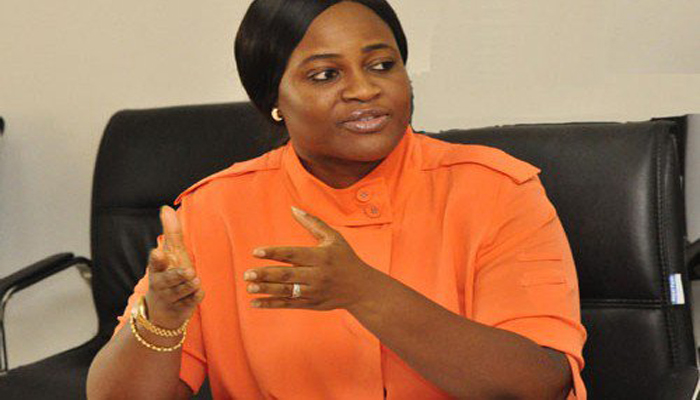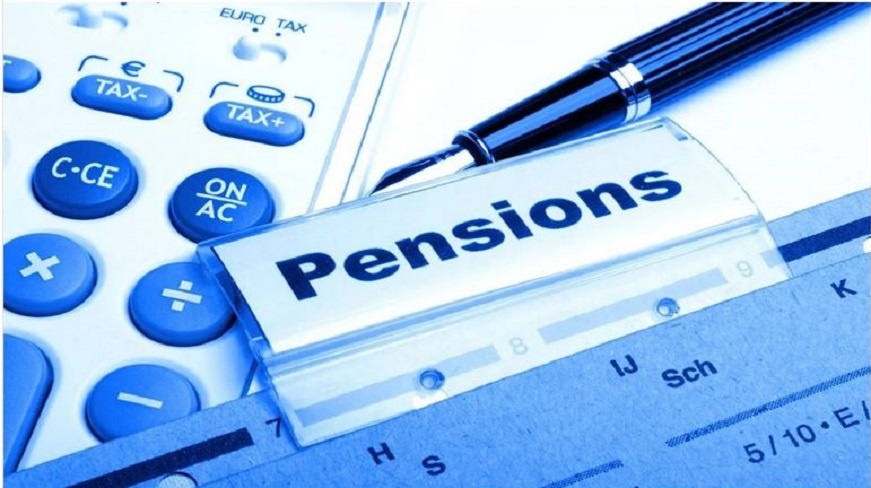Economy
Africa Still Attractive To Investors—PenCom Boss


By Modupe Gbadeyanka
Nigeria’s National Pension Committee (PenCom) boss, Mrs Chinelo Anohu-Amazu, has disclosed that despite how people downgrade Africa, the continent was still very attractive to foreign investors.
Mrs Anohu-Amazu said, “There is a lot of talk around retrenching from Africa but I’m not seeing this at all,” pointing out that, “Look at what the International Finance Corporation (IFC) are doing in the region for instance. If you look at the amount of money they are putting into Africa, I wouldn’t say this meant that investment was scaling back at all.”
Her remarks come at a time when private equity, the long-term investment vehicle often heralded as complimenting Africa’s long-term development needs, in the continent appears to be losing its shine.
Most recently, the IFC has leant $25m to support the expansion of Nigerian dairy company, Promasidor, invested $200m in Guinea’s bauxite mining sector and arranged a financing package to expand Ghana’s seaport to boost trade.
Although the IFC as part of its mandate often invests in sectors and countries that are not as popular for mainstream investors, for Mrs Anohu-Amazu, this highlights an interesting point: “Institutions such as the IFC are coming into Africa because there are still obvious returns to be made – impact investing can still be profitable.”
In September, Marlon Chigwende announced his departure from Carlyle, and in August, Peter Baird was removed as Africa head from Standard Chartered private equity team. Meanwhile, it is rumoured that John van Wyk may be leaving his post as head of Africa at Actis.
According to the African Economic Outlook Report 2016, published by the AfDB, the OECD and the UNDP, portfolio flows into Africa have fallen from $23bn in 2014 to $13bn in 2015. In the second half of 2015, there was a net portfolio exit of equity while bond flows remained relatively stable. Remittances are still the most important source of external finance accounting for $64bn in 2015.
“Portfolio flows in and out of Africa can be more reactionary,” says Mrs Anohu-Amazu. “Many of these investors will be waiting to see how policy changes react to recent economic headwinds affecting the region.”
The recent fall in commodity prices, inflation and stringent foreign exchange policies that commodity producers have introduced in response to fiscal and economic pressure has been a turn off for some investors.
Nigeria, one of Africa’s major oil producers, has seen foreign direct investment fall 27% from $4.7bn in 2014 to $3.4bn in 2015.
“Foreign exchange receivables from oil in Nigeria have fallen which in itself reduces portfolio flows into the country, but the downturn in the global oil price marks a period of readjustment for commodity and oil exporters, and we hope that in Nigeria, this will mean that government policy will reinvigorate investment into agriculture and technology for instance,” says Mrs Anohu-Amazu.
“I don’t think there is a scaling back in terms of investment into Africa, more a realignment. Investment into the continent is changing,” she adds.
She further said in June 2016, total assets under management for PenCom reached N5.73 trillion up from N2 trillion in 2010 with an average annual growth of 20 percent.
Around 11.43 percent of Nigeria’s total labour force and 3.95 percent of the population contribute to a pension, but new initiatives coming in to increase this.
“Our micro pension initiative aims to attract contributions from the 20m Nigerians who work in the informal sector. The rules for these types of contributors will be more flexible, however, to fit in with the way in which they work,” says Mrs Anohu-Amazu.
“Education around pensions will also be a key part of the initiative,” she added.
Economy
Nigeria’s Economy Expands 4.07% in Q4 2025

By Adedapo Adesanya
Nigeria’s economy, measured by gross domestic product (GDP), grew by 4.07 per cent (year-on-year) in real terms in the fourth quarter (Q4) of 2025.
The National Bureau of Statistics (NBS) announced the development in its latest GDP report for Q4 2025 on Friday.
The latest figure represents an improvement over the 3.76 per cent growth recorded in the corresponding period of 2024, signalling sustained recovery across key sectors of the economy. The growth rate was faster than the third quarter’s 3.98 per cent.
The report confirmed that Nigeria’s oil sector grew 6.79 per cent year-on-year and the non-oil part of the economy expanded by 3.99 per cent.
Nigeria’s average daily oil production stood at 1.58 million barrels per day in the final three months of 2025. That was lower than the third quarter’s output of 1.64 million barrels per day but higher than the 1.54 million barrels per day in the fourth quarter of 2024.
Breakdown of the data showed that the agriculture sector grew by 4.00 per cent in the fourth quarter of 2025. This marks a significant increase compared to the 2.54 per cent growth recorded in the same quarter of 2024, reflecting improved output and resilience in the sector.
The industry sector also recorded a stronger performance during the period under review. It grew by 3.88 per cent year-on-year, up from 2.49 per cent posted in the fourth quarter of 2024. The improvement suggests enhanced activity in manufacturing, construction, and related industrial sub-sectors.
The services sector maintained its position as a major growth driver, expanding by 4.15 per cent in Q4 2025. However, this was slightly lower than the 4.75 per cent growth recorded in the corresponding quarter of the previous year.
Overall, the 4.07 per cent GDP growth in the final quarter of 2025 underscores broad-based expansion across agriculture, industry, and services, despite a marginal moderation in services growth.
The Q4 performance provides further evidence of strengthening economic momentum, with improvements recorded in both agriculture and industry compared to the previous year.
Economy
Flour Mills Supports 2026 Paris International Agricultural Show

By Modupe Gbadeyanka
For the second time, Flour Mills of Nigeria Plc is sponsoring the Paris International Agricultural Show (PIAS) as part of its strategies to fortify its ties with France.
The 2026 PIAS kicked off on February 21 and will end on March 1, with about 607,503 visitors, nearly 4,000 animals, and over 1,000 exhibitors in attendance last year, and this year’s programme has already shown signs of being bigger and better.
The theme for this year’s event is Generations Solution. It is to foster knowledge transfer from younger generations and structure processes through which knowledge can be harnessed to drive technological advancement within the global agricultural sector.
In his address on the inaugural day of the Nigerian Pavilion on February 23, the Managing Director for FMN Agro and Director of Strategic Engagement/Stakeholder Relations, Mr Sadiq Usman, said, “At FMN, our mission is Feeding and Enriching Lives Every Day.
“This is a mandate we have fulfilled through decades of economic shifts, rooted in a culture of deep resilience and constant innovation. We support this pavilion because FMN recognises that the next frontier of global Agribusiness lies in high-level technical exchange.
“We thank the France-Nigeria Business Council (FNBC), the organisers of the PIAS, and our fellow members of the Nigerian Pavilion – Dangote, BUA, Zenith, Access, and our partners at Creativo El Matador and Soilless Farm Lab— we are exceedingly pleased to work to showcase the true face of Nigerian commerce.”
Speaking on the invaluable nature of the relationship between Nigeria and France, and the FMN’s commitment to process and product innovation, Mr John G. Coumantaros, stated, “The France – Nigeria relationship is a valuable partnership built on a shared value agenda that fosters remarkable Intercontinental trade growth.
“Also, as an organisation with over six decades of transformational footprint in Nigeria and progressively across the African Continent, FMN has been unwaveringly committed to product and process innovation.
“Therefore, our continuous partnership with France for the success of the Paris International Agricultural Show further buttresses the thriving relationship between both countries.”
PIAS is one of the most widely attended agricultural shows, with thousands of people from across the world in attendance.
Economy
NEITI Backs Tinubu’s Executive Order 9 on Oil Revenue Remittances

By Adedapo Adesanya
Despite reservations from some quarters, the Nigeria Extractive Industries Transparency Initiative (NEITI) has praised President Bola Tinubu’s Executive Order 9, which mandates direct remittances of all government revenues from tax oil, profit oil, profit gas, and royalty oil under Production Sharing Contracts, profit sharing, and risk service contracts straight to the Federation Account.
Issued on February 13, 2026, the order aims to safeguard oil and gas revenues, curb wasteful spending, and eliminate leakages by requiring operators to pay all entitlements directly into the federation account.
NEITI executive secretary, Musa Sarkin Adar, called it “a bold step in ongoing fiscal reforms to improve financial transparency, strengthen accountability, and mobilise resources for citizens’ development,” noting that the directive aligns with Section 162 of Nigeria’s Constitution.
He noted that for 20 years, NEITI has pushed for all government revenues to flow into the Federation Account transparently, calling the move a win.
For instance, in its 2017 report titled Unremitted Funds, Economic Recovery and Oil Sector Reform, NEITI revealed that over $20 billion in due remittances had not reached the government, fueling fiscal woes and prompting high-level reforms.
Mr Adar described the order as a key milestone in Nigeria’s EITI implementation and urged amendments to align it with these reforms.
He affirmed NEITI’s role in the Petroleum Industry Act (PIA) and pledged close collaboration with stakeholders, anti-corruption bodies, and partners to sustain transparent management of Nigeria’s mineral resources.
Meanwhile, others like the Petroleum and Natural Gas Senior Staff Association of Nigeria (PENGASSAN) have kicked against the order, saying it poses a serious threat to the stability of the oil and gas industry, calling it a “direct attack” on the PIA.
Speaking at the union’s National Executive Council (NEC) meeting in Abuja on Tuesday, PENGASSAN President, Mr Festus Osifo, said provisions of the order, particularly the directive to remit 30 per cent of profit oil from Production Sharing Contracts (PSCs) directly to the Federation Account, could destabilise operations at the Nigerian National Petroleum Company (NNPC) Limited.
Mr Osifo firmly dispelled rumours of imminent protests by the union, despite widespread claims that the controversial executive order threatens the livelihoods of 10,000 senior staff workers at NNPC.
He noted, however, that the union had begun engagements with government officials, including the Presidential Implementation Committee, and expressed optimism that common ground would be reached.
Mr Osifo, who also serves as President of the Trade Union Congress (TUC), expressed concerns that diverting the 30 per cent profit oil allocation to the Federation Account Allocation Committee (FAAC), without clearly defining how the statutory management fee would be refunded to NNPC, could affect the salaries of hundreds of PENGASSAN members.
-

 Feature/OPED6 years ago
Feature/OPED6 years agoDavos was Different this year
-
Travel/Tourism10 years ago
Lagos Seals Western Lodge Hotel In Ikorodu
-

 Showbiz3 years ago
Showbiz3 years agoEstranged Lover Releases Videos of Empress Njamah Bathing
-

 Banking8 years ago
Banking8 years agoSort Codes of GTBank Branches in Nigeria
-

 Economy3 years ago
Economy3 years agoSubsidy Removal: CNG at N130 Per Litre Cheaper Than Petrol—IPMAN
-

 Banking3 years ago
Banking3 years agoSort Codes of UBA Branches in Nigeria
-

 Banking3 years ago
Banking3 years agoFirst Bank Announces Planned Downtime
-

 Sports3 years ago
Sports3 years agoHighest Paid Nigerian Footballer – How Much Do Nigerian Footballers Earn




















